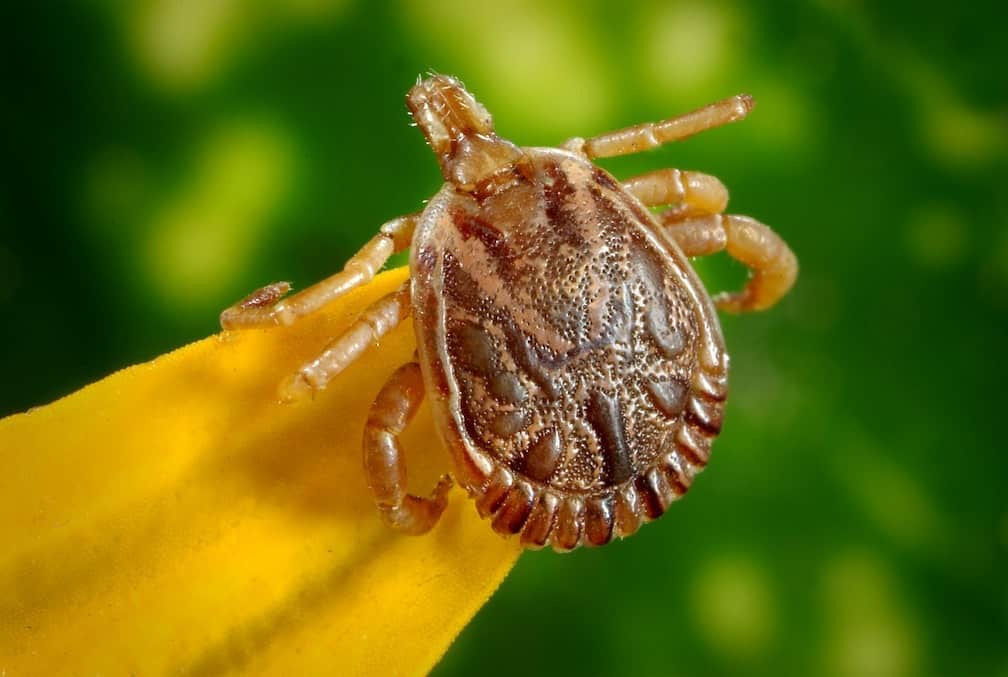Have you seen the news lately? It seems like every news agency is covering something on ticks. Turn on CBS to hear about Lyme disease spreading fast. Turn to NBC and find out about a new kind of tick that is causing an epidemic of Rocky Mountain spotted fever. Open up the Washington Post to read about the paralysis of a 5-year-old girl in Mississippi due to a tick bite. Listen to NPR and hear how a rare meat allergy caused by tick bites may be on the rise. It's enough to make you want to seal yourself inside your home and never go out again. But, are ticks as dangerous as the news agencies are reporting? And if they are, why are they so dangerous? Let's take a look.
It is important to look at the stories of tick-borne diseases as we would stories of fatal car accidents. While thousands of car accidents happen every day in the United States, that doesn't mean you're going to get into a car accident the next time you go out for a drive. And not every car accident leads to a fatality. But, with tens of thousands of people dying each year from car accidents in our country, it is important to take precautions. If you do, you can lower your risk. The same thing applies when it comes to dealing with ticks.
Not every tick that attaches to you is going to infect you with a disease, but the sheer number of diseases that can be transmitted by ticks should give us cause to take precautions. According to the CDC, the diseases spread by ticks include, but are not limited to, Lyme disease, Rocky Mountain spotted fever (RMSF), babesiosis, ehrlichiosis, tularemia, tick-borne relapsing fever (TBRF), Colorado tick fever, Bourbon virus, Powassan disease, Rickettsia parkeri rickettsiosis, Southern tick-associated rash illness (STARI), 364D rickettsiosis, Heartland virus, and anaplasmosis. Not only that, the CDC reports that cases of tick-borne diseases have increased by 200 percent in the past 13 years. It is estimated that there are 300,000 cases of Lyme disease alone!
The diseases listed above can have serious symptoms. Some of these diseases can develop into chronic forms that result in lifelong health issues such as fatigue, joint and muscle pain, swelling, headaches, an allergy to meat, heart complications, arthritis, neurological disorders, to name only a few.
Ticks can affect us in other ways too. When they make our pets sick, it can cause us a great deal of emotional trauma and lead to challenging medical expenses.
WHAT TO DO ABOUT DANGEROUS TICKS
When it comes to reducing the threat of tick-borne illness, there is no quick fix. Protection must be four-fold.
1. Individual Protection
-
Be sure to wear tick or mosquito repellent on your skin or clothing when outside in nature, especially on the legs.
-
Wear bright or light-colored pants to make it easier to spot ticks as they climb up.
-
Consider tucking your pant legs into your socks to keep ticks from gaining access to your skin.
-
Avoid hanging vegetation, tall grass, and moist, shady areas where questing ticks often hide.
-
Do a check for ticks when you come in and use a tick removal tool to remove any ticks you find. Early detection and removal can prevent the spread of illness from tick to human.
2. Pet Protection
-
Invest in veterinarian-prescribed tick control products. Collars, powers, sprays, and medications can make your pet less of a target.
-
Create a fenced-in outdoor play area for your dogs. This will keep them from exploring the areas around your home and in your yard where ticks may be hiding.
-
Perform routine tick-checks on your furry family members. Make sure to check in the ears and between the toes where ticks prefer to attach.
3. Tick Reduction
-
Reduce shade and moisture around your home to reduce conditions that allow ticks to survive and thrive on your property.
-
Invest in tick-reduction service from a professional pest control company.
4. Rodent and Wildlife Control
-
Make sure exterior trash is in sealed receptacles that cannot be knocked over.
-
Put up fencing to keep wildlife out of your yard.
-
Keep bird feeders away from your home. Birds can carry ticks!
-
Do routine inspections and seal any holes that rodents can exploit or make larger.
-
Remove clutter from your yard to make it less interesting to rodents.
-
Invest in rodent control from a professional pest control company.


